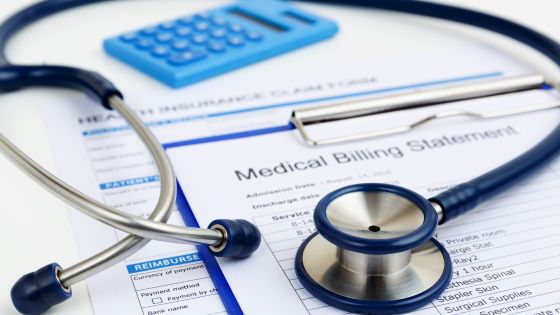The rising healthcare expenditure is a significant burden for many families in today’s difficult economic climate. The costs of medical care have the potential to swiftly overwhelm patients, putting them in a difficult financial position. There are, nevertheless, measures you can do to get through this challenging scenario. When you can’t afford to pay your medical costs, here are some practical techniques and resources to consider.

Understand Your Medical Bills
It’s important to ensure you fully understand your medical bills, despite the fact that they might be difficult to understand and complicated. Make sure that your medical bills are accurate, and look for any inconsistencies as you go through the process of reviewing them. Take note of the dates, the services performed, and the associated fees. If you discover any problems or have issues, please contact the billing department of the healthcare provider for clarification. If you are aware of your medical bills, you will be able to make well-informed decisions and successfully address any problems that can arise.
Communicate with Healthcare Providers
What happens if you can’t pay medical bills? In such cases, you will be eligible for financial help programs or payment plans made available at many medical facilities. When confronted with a difficult financial situation, it is necessary to have open communication with your healthcare professionals. Get in touch with the billing division and be as forthright and honest as possible when explaining your predicament. They could be ready to work with you to build a payment schedule that is manageable for you, or they might be willing to give discounted charges based on your income. You can examine solutions that are suitable for your current level of financial stability if you start this dialogue.
Explore Government Assistance Programs
People who are having trouble paying their medical expenses can qualify for aid through government assistance programs. Programs such as Medicaid provide Coverage for medical expenses to families and people with low incomes. Because the requirements for eligibility and the benefits provided by Medicaid vary from state to state, you should contact the Medicaid office in your home state to determine whether or not you are eligible for the program. In addition, the Affordable Care Act (ACA) marketplace provides options for reasonably priced health insurance, which can assist in reducing the strain that your finances are putting you under. You can gain access to healthcare coverage and possibly minimize the money you have to pay out of pocket if you investigate these programs.
Negotiate with Medical Providers
The fact that medical costs are frequently up for negotiation is something that many people are unaware of. Contact your chosen healthcare provider and ask about the possibility of negotiating the cost of your treatment. Describe the state of your finances and include any supporting documentation you believe is necessary to bolster your argument. Given your financial situation, you can ask them whether they would be willing to reduce the total price or put up an affordable payment plan. Many healthcare practitioners know consumers’ difficulties and are typically prepared to negotiate a favorable arrangement for both parties. Maintain a persistent and proactive stance throughout the bargaining process.
Protect Your Credit
Your credit score can suffer if you have medical expenses that are past due, which will limit the options you have for future financial success. It is imperative that you take the initiative to deal with your medical expenditures in order to safeguard your creditworthiness. Always keep a record of all contacts with the healthcare providers you work with, including any payment agreements or disputes. Additionally, if it becomes essential, you can contact credit bureaus to add a statement to your account explaining the circumstances surrounding your medical bills. If you take these steps, you can lessen the influence that it will have on your credit history over the long term and keep your financial well-being intact.
Conclusion
It’s critical to remember that you’re not alone if you are unable to pay your medical bills. You can gain control of your circumstance by comprehending your bills, speaking with healthcare providers, investigating government aid programs, and preserving your credit. Never forget to take each step slowly and persistently. Even if the process could be difficult, some tools can be used to lessen the load of medical bills and pave the way to financial stability. You can negotiate the intricacies of medical costs and protect your financial security by being proactive and asking for help when necessary.
